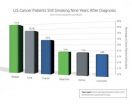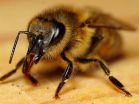(Press-News.org) Two Ignite sessions focusing on findings in the United States National Climate Assesment5 (NCA) will take place on Monday, August 11th during the Ecological Society of America's 99th Annual Meeting, held this year in Sacramento, California.
The first session, Ignite 1: From Plains to Oceans to Islands: Regional Findings from the Third National Climate Assessment will highlight major findings from the report about the regional effects of climate change, discuss impacts to the ecosystems of the region, and explore how changes in those ecosystems can moderate or exacerbate the impacts of climate change when coupled with other socioeconomic and demographic shifts.
Report authors will discuss key findings from each of the ten regions: Northeast, Southeast and Caribbean, Midwest, Great Plains, Northwest, Southwest, Alaska, Hawai'i and U.S. Affiliated Pacific Islands, Coasts, and Oceans and Marine Resources.
The second session, Ignite 2: From Mountains to Coasts: Ecosystems in the Third National Climate Assessment major findings from the report about climate change's effects on ecosystems and sectors of concern. NCA authors will discuss the numerous impacts of climate change on ecosystems, including shifts in biodiversity and location of species, disruptions in ecosystem structures and functions, inability of ecosystems to adapt to change, and alterations to the capacity of ecosystems to moderate the consequences of disturbances.
Ecosystems provide a rich array of benefits and services to humanity, including habitat for fish and wildlife, drinking water storage and filtration, fertile soils for growing crops, buffering against a range of stressors including climate change impacts, and aesthetic and cultural values.
Because of the importance of ecosystems to humanity, climate change impacts will affect the fisheries, drinking water, air quality, croplands, and iconic species and landscapes that support jobs, economic growth, health, and human well-being.
"As an ecologist, you can't escape the effects of climate change on natural resources. We're observing climate impacts in nearly all natural and managed ecosystems," said Ecological Society of America President Jill Baron, an ecosystem scientist with the US Geological Survey in Fort Collins, Col., and a contributor to the NCA. "In order to protect biodiversity and the natural resources that we rely on, we need to be developing policy now. The National Climate Assessment provides guidelines for how to respond and adapt."
The NCA collects, integrates, and assesses observations and research from around the country, helping to show how the climate is changing and what it means for the communities, states, and regions in which we live.
The NCA report is the most comprehensive assessment of climate change science, impacts, and responses in the United States to date. It analyzes the current and future impacts of climate change the United States and summarizes key risks and opportunities for each of ten regions.
Evidence for climate change abounds, from the top of the atmosphere to the depths of the oceans. Scientists and engineers from around the world have meticulously collected this evidence, using satellites and networks of weather balloons, thermometers, buoys, and other observing systems. Evidence of climate change is also visible in the observed and measured changes in location and behavior of species and functioning of ecosystems.
Taken together, this evidence tells an unambiguous story: the planet is warming, and over the last half century, this warming has been driven primarily by human activity. U.S. average temperature has increased by 1.3°F to 1.9°F since 1895, and most of this increase has occurred since 1970. Temperatures are projected to rise another 2°F to 4°F in most areas of the United States over the next few decades. The magnitude of climate change beyond the next few decades depends primarily on the amount of heat-trapping gases emitted globally, and how sensitive the Earth's climate is to those emissions.
INFORMATION:
Ecological Society of America's 99th Annual Meeting, August 10-15th, 2014, in Sacramento, Cal.
Main * Program * Press Information * App
Ignite 1: From Plains to Oceans to Islands: Regional Findings from the Third National Climate Assessment
Monday, August 11, 2014: 1:30 PM-3:00 PM, Room 313, Sacramento Convention Center
Organizer: Emily Therese Cloyd
Ignite 2: From Mountains to Coasts: Ecosystems in the Third National Climate Assessment
Monday, August 11, 2014: 3:30 PM-5:00 PM, 313, Sacramento Convention Center
Organizer: Rebecca J. Aicher
Co-organizer: Emily Therese Cloyd
Resources:
Third National Climate Assessment report, data, and tools (website)
Special Issue: Impacts of climate change on biodiversity, ecosystems, and ecosystem services. Frontiers in Ecology and the Environment 11(9) November, 2013 (open access). Summary.
SH Julius et al. Climate change and U.S. natural resources: advancing the nation's capability to adapt. Issues in Ecology, Fall 2013. (pdf)
The Ecological Society of America is the world's largest community of professional ecologists and a trusted source of ecological knowledge. ESA is committed to advancing the understanding of life on Earth. The 10,000 member Society publishes five journals, convenes an annual scientific conference, and broadly shares ecological information through policy and media outreach and education initiatives. Visit the ESA website at http://www.esa.org.
Preparing for a changing climate: Ecologists unwrap the science in the National Climate Change Assessment
Findings from The Third National Climate Assessment Report (released in spring 2014) will be presented at the Ecological Society of America's 2014 Annual Meeting in Sacramento, Cal., August 10-15.
2014-08-06
ELSE PRESS RELEASES FROM THIS DATE:
Triangulum galaxy snapped by VST
2014-08-06
Messier 33, otherwise known as NGC 598, is located about three million light-years away in the small northern constellation of Triangulum (The Triangle). Often known as the Triangulum Galaxy it was observed by the French comet hunter Charles Messier in August 1764, who listed it as number 33 in his famous list of prominent nebulae and star clusters. However, he was not the first to record the spiral galaxy; it was probably first documented by the Sicilian astronomer Giovanni Battista Hodierna around 100 years earlier.
Although the Triangulum Galaxy lies in the northern ...
Study: Many cancer survivors smoke years after diagnosis
2014-08-06
ATLANTA – August 6, 2014–Nearly one in ten cancer survivors reports smoking many years after a diagnosis, according to a new study by American Cancer Society researchers. Further, among ten cancer sites included in the analysis, the highest rates of smoking were in bladder and lung cancers, two sites strongly associated with smoking. The study appears early online in Cancer Epidemiology, Biomarkers & Prevention.
Cigarette smoking decreases the effectiveness of cancer treatments, increases the probability of recurrence, and reduces survival time. Nonetheless, some studies ...
Nearly 10 percent of patients with cancer still smoke
2014-08-06
PHILADELPHIA — Nine years after diagnosis, 9.3 percent of U.S. cancer survivors were current smokers and 83 percent of these individuals were daily smokers who averaged 14.7 cigarettes per day, according to a report in Cancer Epidemiology, Biomarkers & Prevention, a journal of the American Association for Cancer Research (AACR).
"We need to follow up with cancer survivors long after their diagnoses to see whether they are still smoking and offer appropriate counseling, interventions, and possible medications to help them quit," said Lee Westmaas, PhD, director of tobacco ...
Healthy diet set early in life
2014-08-06
Promoting a healthy diet from infancy is important to prevent childhood obesity and the onset of chronic disease.
This is the finding from a study published in the latest issue of Australian and New Zealand Journal of Public Health.
Led by Rebecca Byrne from QUT, the study described quantity and diversity of food and drinks consumed by children aged 12-16 months.
"The toddler years are a critical age in the development of long-term food preferences, but this is also the age that autonomy, independence and food fussiness begins," Ms Byrne said.
"Childhood obesity in ...
Nutrition an issue for Indigenous Australians
2014-08-06
Nutrition has not been given enough priority in national Aboriginal and Torres Strait Islander health policy in recent years.
This is the finding from a study published in the latest issue of Australian and New Zealand Journal of Public Health.
Led by Jennifer Browne from La Trobe University, the study examined Aboriginal-specific health policies and strategies developed between 2000 and 2012.
"Increased inclusion of nutrition in Aboriginal health policy was identified during the first half of this period, but less during the second where a much greater emphasis was ...
Crime Victims' Institute tracks the state of stalking in Texas
2014-08-06
HUNTVILLE (8/6/14) -- According to a 2010 survey by the Center for Disease Control and Prevention (CDC), an estimated 1.4 million women in Texas experience stalking during their lifetimes. Despite recent laws adopted in the state to protect stalking victims, little information is available about the crime or policies and procedures to aid the criminal justice system, according to a report from the Crime Victims' Institute (CVI).
According to CDC estimates, 15.6 percent of the female population in Texas will experience stalking, slightly less than the 16.2 percent national ...
Vanderbilt finding may aid recovery from spinal cord injury
2014-08-05
Researchers in the Vanderbilt University Institute of Imaging Science (VUIIS) have achieved the first conclusive non-invasive measurement of neural signaling in the spinal cords of healthy human volunteers.
Their technique, described today in the journal eLife, may aid efforts to help patients recover from spinal cord injuries and other disorders affecting spinal cord function, including multiple sclerosis.
"We definitely hope that this work can be translated to address many neurological disorders," said the paper's first author, Robert Barry, Ph.D., a postdoctoral ...
Researchers boost insect aggression by altering brain metabolism
2014-08-05
CHAMPAIGN, Ill. — Scientists report they can crank up insect aggression simply by interfering with a basic metabolic pathway in the insect brain. Their study, of fruit flies and honey bees, shows a direct, causal link between brain metabolism (how the brain generates the energy it needs to function) and aggression.
The team reports its findings in the Proceedings of the National Academy of Sciences.
The new research follows up on previous work from the laboratory of University of Illinois entomology professor and Institute for Genomic Biology director Gene Robinson, ...
This week from AGU: Sea-level spikes, volcanic risk, volcanos cause drought
2014-08-05
From AGU's blogs: Sea-level spikes can harm beaches worse than hurricane
Unforeseen, short-term increases in sea level caused by strong winds, pressure changes and fluctuating ocean currents can cause more damage to beaches on the East Coast over the course of a year than a powerful hurricane making landfall, according to a new study. The new research suggests that these sea-level anomalies could be more of a threat to coastal homes and businesses than previously thought, and could become higher and more frequent as a result of climate change, according to a new study ...
Biology made simpler with clear tissues
2014-08-05
In general, our knowledge of biology—and much of science in general—is limited by our ability to actually see things. Researchers who study developmental problems and disease, in particular, are often limited by their inability to look inside an organism to figure out exactly what went wrong and when.
Now, thanks to techniques developed at Caltech, scientists can see through tissues, organs, and even an entire body. The techniques offer new insight into the cell-by-cell makeup of organisms—and the promise of novel diagnostic medical applications.
"Large volumes of tissue ...
LAST 30 PRESS RELEASES:
Genetic risk for mental illness is far less disorder-specific than clinicians have assumed, massive Swedish study reveals
A therapeutic target that would curb the spread of coronaviruses has been identified
Modern twist on wildfire management methods found also to have a bonus feature that protects water supplies
AI enables defect-aware prediction of metal 3D-printed part quality
Miniscule fossil discovery reveals fresh clues into the evolution of the earliest-known relative of all primates
World Water Day 2026: Applied Microbiology International to hold Gender Equality and Water webinar
The unprecedented transformation in energy: The Third Energy Revolution toward carbon neutrality
Building on the far side: AI analysis suggests sturdier foundation for future lunar bases
Far-field superresolution imaging via k-space superoscillation
10 Years, 70% shift: Wastewater upgrades quietly transform river microbiomes
Why does chronic back pain make everyday sounds feel harsher? Brain imaging study points to a treatable cause
Video messaging effectiveness depends on quality of streaming experience, research shows
Introducing the “bloom” cycle, or why plants are not stupid
The Lancet Oncology: Breast cancer remains the most common cancer among women worldwide, with annual cases expected to reach over 3.5 million by 2050
Improve education and transitional support for autistic people to prevent death by suicide, say experts
GLP-1 drugs like Ozempic could cut risk of major heart complications after heart attack, study finds
Study finds Earth may have twice as many vertebrate species as previously thought
NYU Langone orthopedic surgeons present latest clinical findings and research at AAOS 2026
New journal highlights how artificial intelligence can help solve global environmental crises
Study identifies three diverging global AI pathways shaping the future of technology and governance
Machine learning advances non targeted detection of environmental pollutants
ACP advises all adults 75 or older get a protein subunit RSV vaccine
New study finds earliest evidence of big land predators hunting plant-eaters
Newer groundwater associated with higher risk of Parkinson’s disease
New study identifies growth hormone receptor as possible target to improve lung cancer treatment
Routine helps children adjust to school, but harsh parenting may undo benefits
IEEE honors Pitt’s Fang Peng with medal in power engineering
SwRI and the NPSS Consortium release new version of NPSS® software with improved functionality
Study identifies molecular cause of taste loss after COVID
Accounting for soil saturation enhances atmospheric river flood warnings
[Press-News.org] Preparing for a changing climate: Ecologists unwrap the science in the National Climate Change AssessmentFindings from The Third National Climate Assessment Report (released in spring 2014) will be presented at the Ecological Society of America's 2014 Annual Meeting in Sacramento, Cal., August 10-15.



